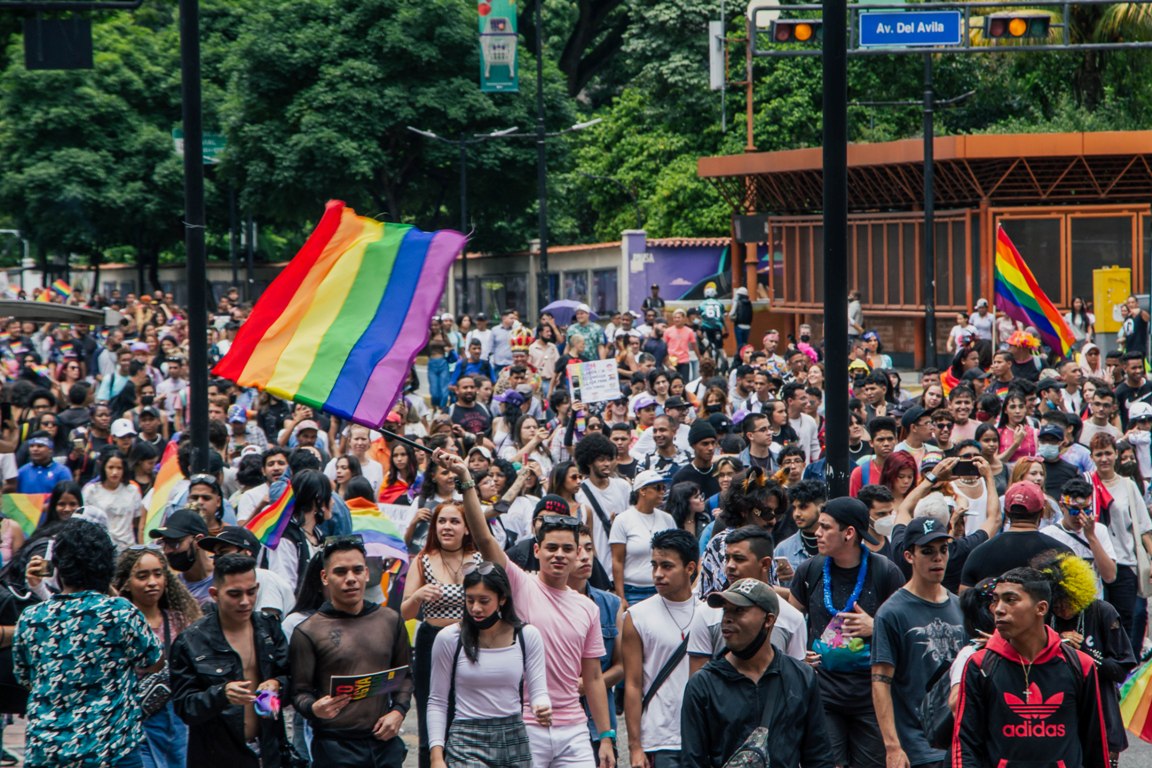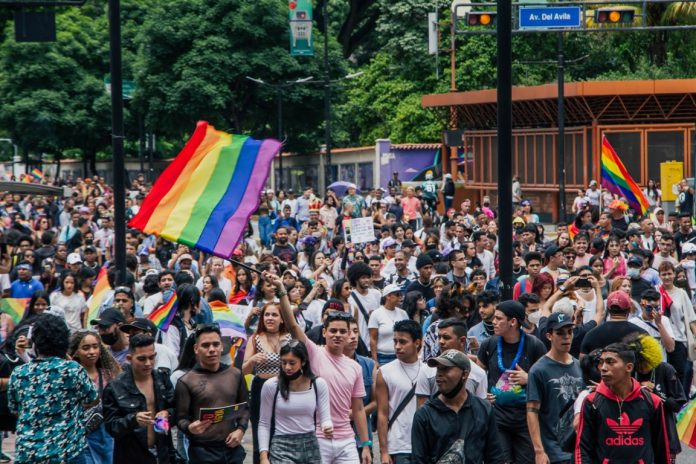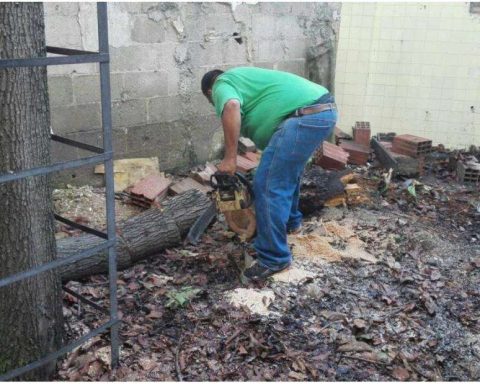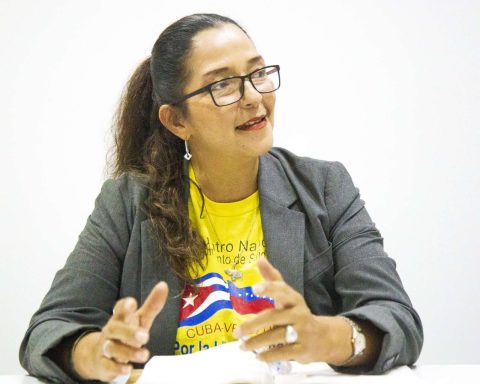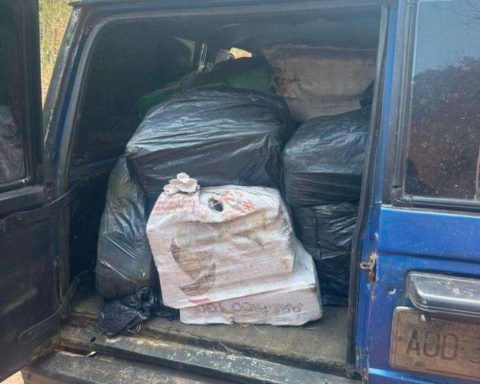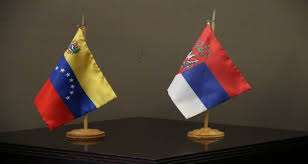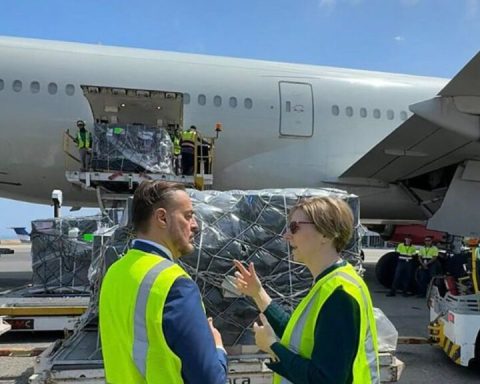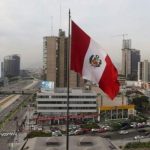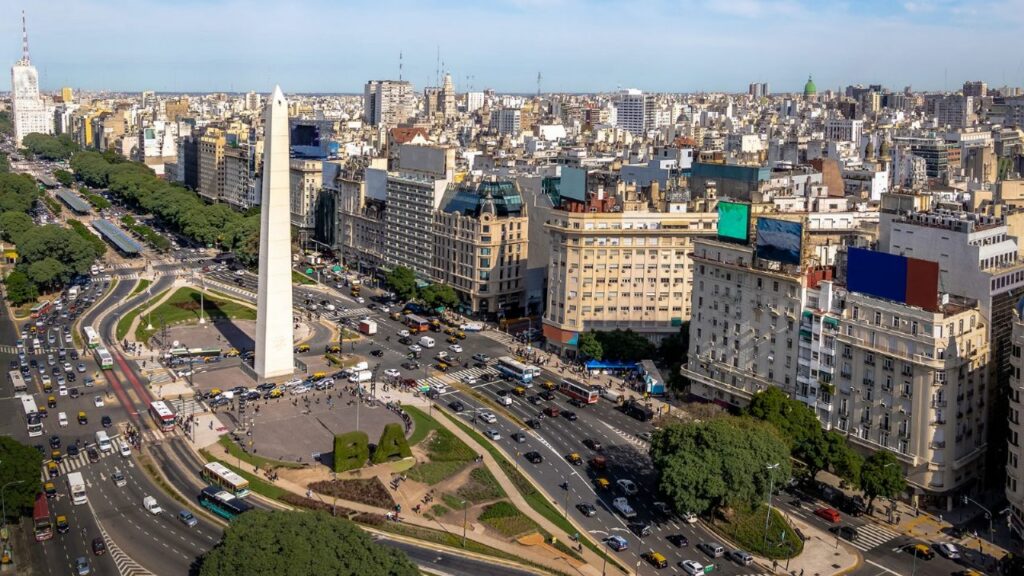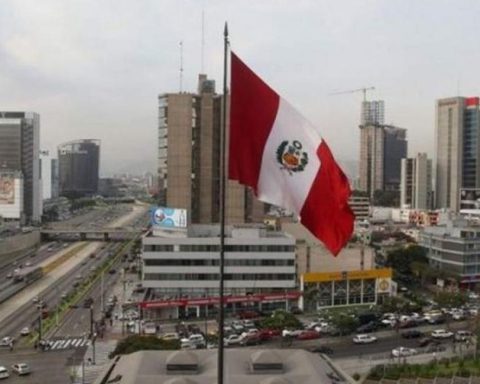The majority of Venezuelans who are members of the LGBTI community are victims of discrimination, especially gay men and bisexual women, in work environments, family, health centers or schools, according to a survey released this Sunday by the NGO Unión Afirmativa.
The study, applied in 17 of the 23 states of Venezuela, and which was carried out in collaboration with 27 NGOs, is based on the responses of 4,728 people who, between May and June of last year, answered structured interviews in which they talked about their living conditions, access to food and health sectors, as well as evaluating situations of violence and discrimination.
The results show that 76.9% of those surveyed have been victims of discrimination for being an Lgbti person, with gay men (95.2%) being the most affected, followed by bisexual women (90%), non-binary people ( 85.7%), male trans people (85.7%), lesbian women (82.6%), bisexual men (42.9%) and female trans people (42.3%).
The NGO indicated that these acts occurred in the community (24.4%), in situations of expression or participation (23.3%), in the family group (18.9%), at work (14.5%) , schools (9%), health centers (6.1%), government programs (1.2%), humanitarian assistance programs (1.5%) and elsewhere (1.2%).
“We highlight the seriousness of the complaints made by LGBTI people about having been discriminated against in some humanitarian assistance program. Humanitarian organizations must adhere to the four principles of humanitarian assistance, namely, humanity, neutrality, impartiality and independence,” said Unión Afirmativa.
The NGO called for developing policies to combat these cases, as well as violence and gender stereotypes.
In Venezuela, a homosexual man cannot donate blood, a trans woman is condemned to legally identify herself with a name that does not represent her, same-sex couples do not have the right to marry, among other prohibitions faced by this group.
In addition, in the last five years there have been dozens of hate crimes against this population, some murders among them, while a political sector in the country has spread messages in the media in which they assure that this group is a threat to the family. and good manners.
